Ghee is a type of clarified butter that is traditionally used in Asian cooking. Like butter, ghee is typically made from grass-fed cow’s milk. Ghee is made by melting regular butter. The butter separates into liquid fats and solid substance of milk. Once separated, the solid substance of milk are removed, which means that ghee has less lactose than butter. Traditionally, desi ghee has been used as cooking oil, an ingredient in dishes, and in Ayurveda therapies. Desi cow ghee is used in Ayurvedic massage and as a base for herbal ointments to treat burns and rashes.
If ghee means calories, sinful indulgence to you, you are mistaken. In fact, CLA present in ghee helps reduce body fat and increases lean muscle mass. As you read further, you’ll realise that ghee has many health benefits contrary to popular belief.
Modern science has also discovered that ghee is rich in antioxidants. The fats in ghee aid absorption of fat-soluble vitamins and minerals from other foods, strengthening the immune system. It is also rich in butyric acid, a fatty acid with anti-viral properties, which is believed to prevent cancers and tumours.
According to Ayurveda, ghee made from cow’s milk promotes memory, intellect and digestion. It also promotes healing of wounds, keeps the skin lustrous and maintains immunity.
Nutrition Facts
One tbsp. of ghee has around 135 calories, all of which come from fat. That small amount of ghee has 15 gm of total fat and 9 gm of saturated fat, or 45% of the recommended daily value. A tbsp. of ghee also has 45 mg of cholesterol, or 15% of the daily value. Ghee is free of sodium, fiber, carbohydrates, sugar and protein.
Properties
Although ghee is entirely fat, it is also important to note that fat has some essential properties for health and even for weight loss. According to the Centers for Disease Control, fat should make up approximately 20 to 35% of your daily calories. Healthy fats help complete tasks like preserving cell membrane structure, enabling your body to absorb nutrients and encouraging proper immune system function. However, most of ghee’s fat calories come from saturated fat, and the CDC (Centers for Disease Control) advises limiting total daily calories from saturated fat to a maximum of 10 percent.

What kind should you buy?
There are many brands in the market which are providing pure ghee online. One of the best pure ghee brand is Suresh Desi Ghee, which they are manufacturing in the most organic way. No doubt the pure word makes it pretty costly but it’s no way precious than your health. Suresh Desi Ghee is handmade from Desi Cow Milk of premium quality. It adds flavour to your daily foods and also keeps you fit and healthy. We prepare Suresh Desi Cow Ghee by Vedic Process, with the help wooden churns and wooden pots to obtain Desi Ghee from Cow Milk fat. The quality and taste of desi ghee depends on the source of the milk used in the process . We obtain Milk from Grass-fed Cow’s which is best source among all. Suresh Desi Ghee is full of Vitamins A, D, E, and K. We (Suresh Desi Ghee) are known for its super quality, smell, taste and, high nutritional value and essential health benefits. Our desi cow ghee is 100% toxin free.
How to Identify The Quality Of Ghee
Not Genuine Ghee
Ghee is worth your effort. Therefore, much of the ghee that is produced in current dates are of the type known as vanaspati ghee, or vegetable ghee. Such is not considered to bea quality ghee at all, as it is not produced from butter. The production of such fake ghee is obtained from fully or partially hydrogenated vegetable oil. Furthermore, there are many inferior brands that promote their products as ghee, but such products are not produced from dairy at all. Customers might get tricked if they don’t know what they are looking for.
Ghee From Buffalo Milk
Just to ensure that the one is buying the best quality ghee, once you are committed to get the original product, one has to ensure that they are purchasing quality ghee produced from cow’s milk.Therefore, about half the milk produced in India is received from buffalos. A buffalo milk consists of about twice the butterfat content as compared to cows. Whereas according to Indian Ayurvedic doctors, such milk does not consist of the same purifying and healing qualities as cow’s milk.
Ghee with Additives
Among a number of very high quality sources of ghee, additives in ghee can be deceptive. Therefore it is better to check the label carefully. Even though a ghee is produced from Buffalo milk, yet the ghee’s color could be bright yellow, cloaking it more like cow’s ghee.
Make sure to check the label, where you can see if the ingredient list revealed that it had spices added. Spices like turmeric could be a factor, which gave the ghee its bright yellow color.
Additives in ghee could be a recent trend.
Why the desi cow ghee is costlier than normal ghee?
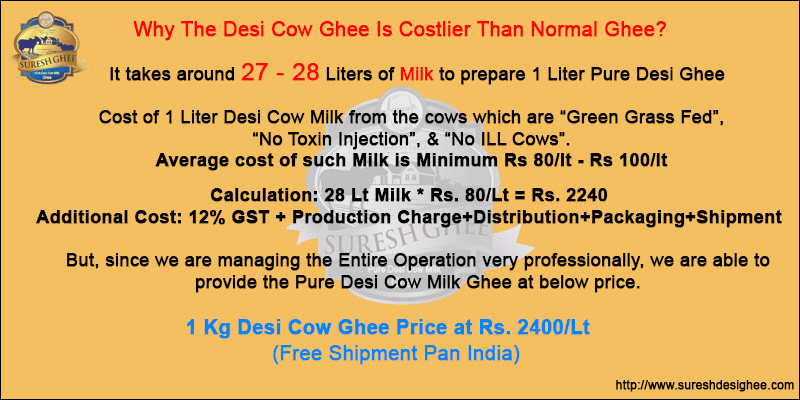
Desi cow ghee is costly than the ghee prepared with commercial method where companies use machines and chemicals to prepare desi ghee. In vedic ghee making process we make ghee by ayurvedic churned method and as we have mentioned above 27-28 Liters of milk is used to make just 1 KG of ghee plus manual labour. Which make pure ghee price little costly than the other ghee available in the market. You should only buy pure, authentic and verified desi ghee. That is more important than the brand. Suresh Desi Ghee backs all its products and processes with unconditional & upfront guarantee. Making it among the most confident concepts.

Some Reasons to Incorporate Ghee Into Your Diet
Desi ghee is a great sources of naturally occurring butyrate in our diet. Butyrate, or butyric acid, is a short-chain fatty acid (SCFAs) that acts as a detoxifier, it’s anti-inflammatory and improves colon health. It’s been shown to support healthy insulin levels and may be helpful for individuals suffering from IBS (Irritable Bowel Syndrome), Crohn’s disease and ulcerative colitis. Basically ghee is great for your guts.
We must consume sources of cholesterol-rich saturated fats like desi ghee to provide the building blocks for sex hormones, including testosterone, oestrogen and progesterone. The cholesterol, vitamins A and K2 found in ghee also plays an important role in hormone synthesis and toxin detox.
Fat-soluble vitamins are absorbed with fat and stored in the gastrointestinal tract (digestive tract) — and they are essential to maintaining a healthy metabolism and required for so many different biochemical processes within the body. Vitamins A and E have been shown to act as powerful antioxidants, and Vitamin A and D are critical in immune function as well as in bone health and development. Ghee also contains a uniquely absorbable form of Vitamin D that helps with the proper functioning of the synapses (a junction between two nerve cells) in the brain. Vitamin A plays an important role in our liver health, fertility, hormone balance and long-lasting energy. Ghee also contains Vitamin K2 which is important for the body to help utilise minerals, including calcium.
Ghee contains both anti-bacterial & anti-fungal properties making it a great way to boost your immune system and also protects us from infection, especially in the digestive tract. It also helps heal minor disease like stomach upset or cold and flu.
Ghee can stay in your kitchen pantry for up to a month once it has been opened, and it lasts in the fridge for about 7/8 months. This is due to the lack of moisture in the oil. Make sure to store your ghee in a sealed jar away from heat.

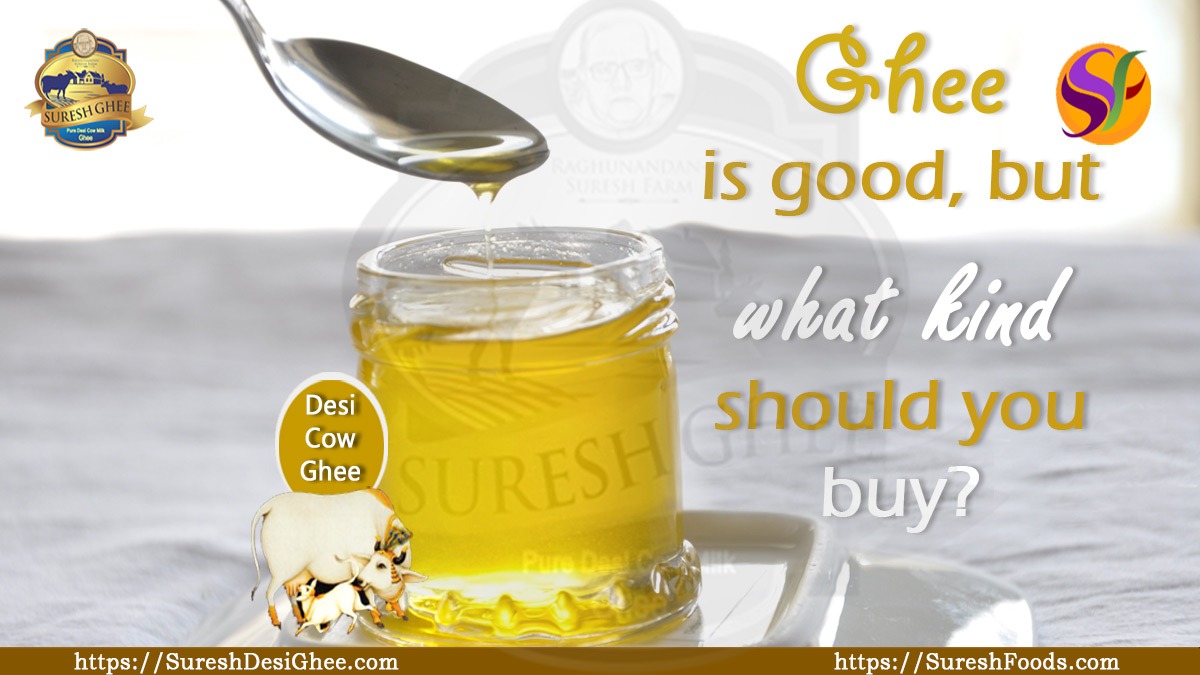
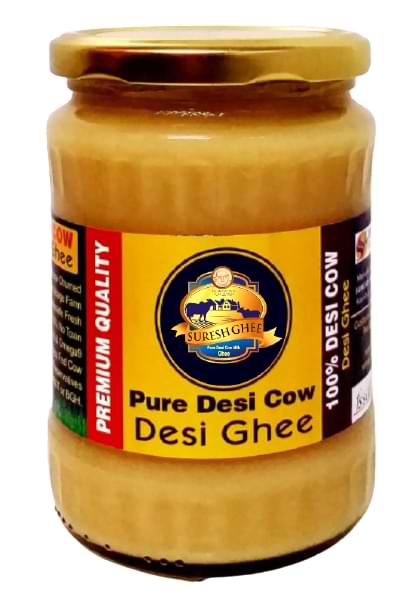
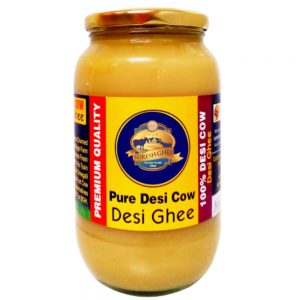
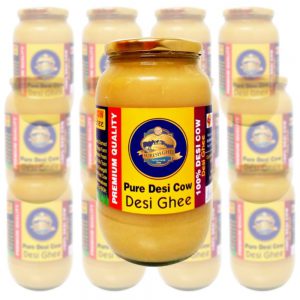
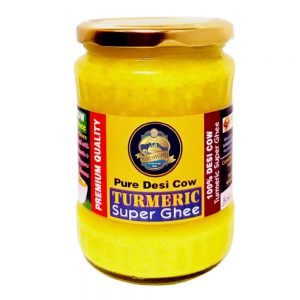
 WhatsApp us
WhatsApp us 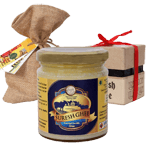
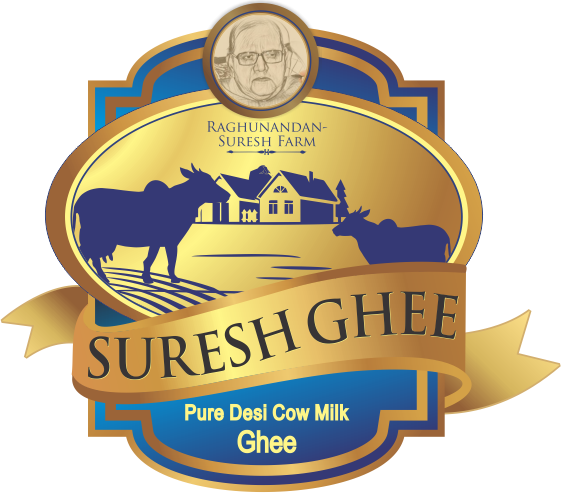
Naveen m...